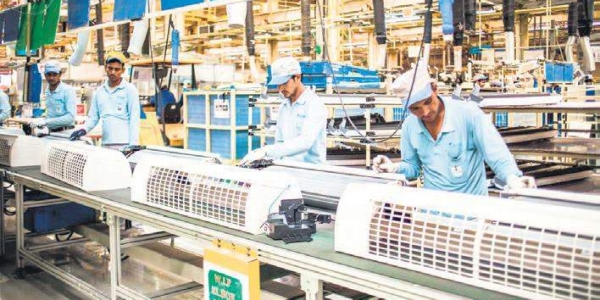The government’s latest move to ease FDI rules for single-brand retail in India will help Prime Minister Narendra Modi to address the thorny issue of jobs to some extent, by creating more employment opportunity in not just retail but its ancillary sectors too, experts said. The move is also likely to benefit the sectors like logistics, warehousing, cold storage and transportation, which will have a positive circular effect on employment generation, Anil Talreja, Partner, Deloitte India said. With the new norms, the single-brand retail companies will now be able to carry out their businesses online, without having to primarily build a brick and mortar store.
Adding to it, the enhanced ease in doing business in the single-brand retail trading is more likely to attract global brands to India at a time where many such brands are looking for a new market to set up their businesses. “Overall, these announcements will synchronise the regulations with the practicalities of doing retail trade in India in line with prevalent business models thereby providing stimuli to general business and trade,” said Anil Talreja added. Increased trade will eventually increase the spending by consumers, which will certainly lead to improve the economic situation in the country, he added.
The permission for e-retailing without having to build an offline store would not only save initial capital expenditure for the brand, but it will also strengthen ‘Digital India’ initiative of the Modi-led government. “Allowing single-brand retailers to start online stores, while meeting local sourcing norms, aligns well with the ‘Digital India’ initiative, giving them time to build their brick-and-mortar presence in parallel,” said Harsha Razdan, Partner, KPMG.
In another important announcement, allowing 100 per cent FDI through the automatic route in the contract manufacturing is aimed to benefit most of the manufacturing companies as there is an upward trend of manufacturing by the contract manufacturers or third party manufacturers. “100% FDI via automatic route for contract manufacturing is true to the ‘Make in India’ initiative and will attract global players looking to set up alternate manufacturing hubs,” Harsha Razdan added.
The media and entertainment industry has grown by 13.3 per cent in the last financial year, whereas the digital media segment specifically has grown by a whopping 43.4 per cent. This points out to the rising demand and opportunities with this segment. Allowing FDI up to 49 per cent in the segment is poised to substantially add to the overall FDI inflow in the country. “This is a welcome move and should lead to larger FDI inflows in India in the already burgeoning digital media sector,” said Himanshu Parekh, Partner and Head, International Tax, KPMG.
Source: FE
Image Courtesy: NIE
You may also like
-
Trade Connect E-platform For Exports Is Single Window, Fast, Accessible And Transformational: Shri Piyush Goyal
-
Dot Simplifies Approval Processes For Telecom Licenses And Wireless Equipment
-
Coal Production and Supply Trends on Positive Trajectory
-
Union Minister To Release Booklets On Promotion Of Indigenous Species & Conservation Of States Fishes
-
2nd India-Japan Finance Dialogue held in Tokyo on 6th September, 2024
